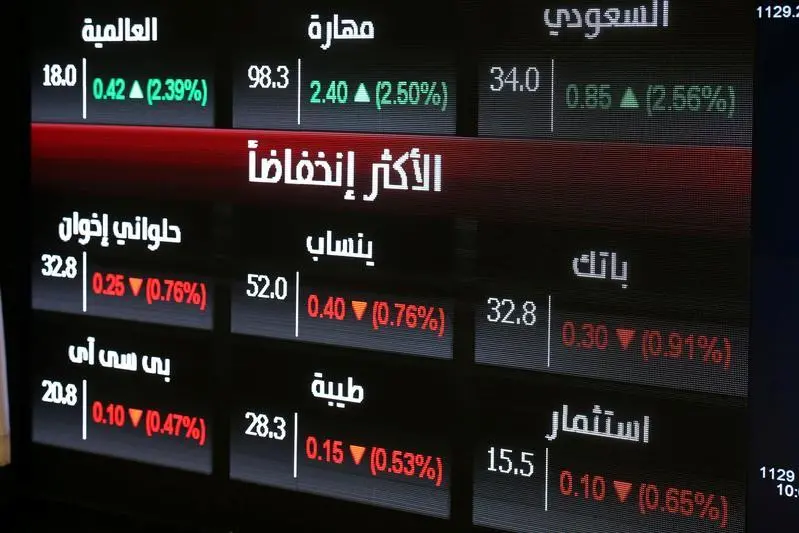PHOTO
As Gulf financial markets tumbled on Monday, in tandem with the Asian gauges and US stock futures, analysts believe the sell-off was, perhaps, premature, and better data releases and clearer communications from monetary authorities could assuage traders' concerns and stabilise markets.
The global market meltdown began Friday, sparked off by a weaker-than-expected US labour market report which showed unemployment rate spiking to 4.3% against expectations, and fuelling fears of an impending US recession.
Concerns over an escalation in the Middle East conflict also weighed on sentiment, and both the UAE equity market indices finished lower on Monday. Dubai's main DFMGI index closed 4.5% lower dragged by key real estate stock and banks stocks. Abu Dhabi's FADGMI index closed 3.4% lower at 8974.69.
Saudi Arabia's main Tadawul index closed 2.13% lower on Monday, extending losses from Sunday.
Trading sentiment was also dampened by oil prices extending losses on Monday as fears of a US recession offset supply worries stemming from the tensions in the Middle East, according to Reuters. Brent crude fell to $76.28 per barrel, after plummeting more than 3% on Friday.
Ehsan Khoman, MUFG's Head of Research: Commodities, ESG and Emerging Markets (EMEA), said regional equity indices have not been immune from the global rout.
"What may support a stabilisation in markets? A run of better data and more dovish communication from central banks. Markets need reassurance that the soft-landing narrative remains on the table – absent this, the US dollar may remain torn – weak against safe havens and strong against high yielders."
Khoman does not believe the equity rout will have an immediate impact on IPOs and deal making in the GCC.
"We need to separate what may be near-term cyclical market volatility with the long-term structural “league of its own” regional transformation programme. The region continues to stand out as a critical creditor contributor in the global economy and irrespective of how this rout transpires, the compelling story remains sacrosanct," he said.
Simon Ballard, Chief Economist at First Abu Dhabi Bank, said while a rate cut by the US Federal Reserve at its September policy meeting now seems to be largely assured, he believes the market may be getting a little ahead of itself in terms of pricing in an outsized, emergency policy reaction from the Fed.
"Upcoming data releases will be key to near-term market direction. We surely need more concrete evidence of recession risk before subscribing to the worst case scenario. Likewise, if future data looks more positive and shows the labour market figures to have been seasonally abnormal outliers, we would expect risk assets to snap back in," Ballard said.
Mathieu Racheter, Head of Equity Strategy Research, and David Kohl, Chief Economist, at Julius Baer believe that the equity markets were ripe for a near term correction, given elevated positioning and optimistic earnings expectations.
"That said, we view the current batch of soft data as a temporary pause in the ongoing economic recovery and continue to price in a low risk of recession (25%)," they said in a note.
George Khoury, Global Head of Education and Research at CFI Financial Group, noted that the Saudi stock market fell for the second consecutive day ignoring positive results from the banking sector and primarily reacting to external factors that are adversely affecting market sentiment.
"Looking ahead, the markets might continue to face downward pressure as the drivers behind the current sell-off persist. Moreover, the potential escalation of military actions in the Middle East could further destabilize and exacerbate market volatility."
(Reporting by Brinda Darasha, Seban Scaria ; editing by Daniel Luiz)




















